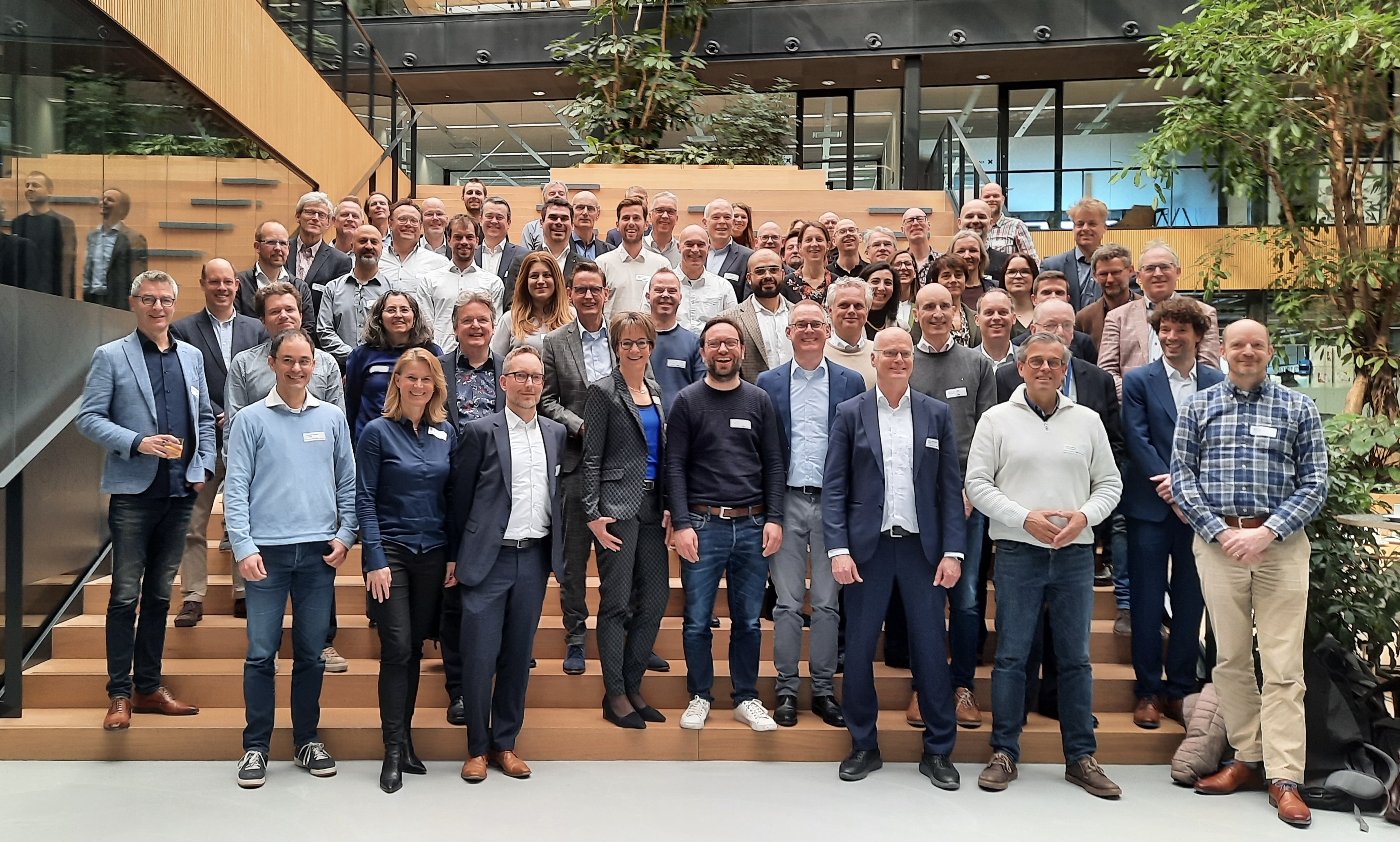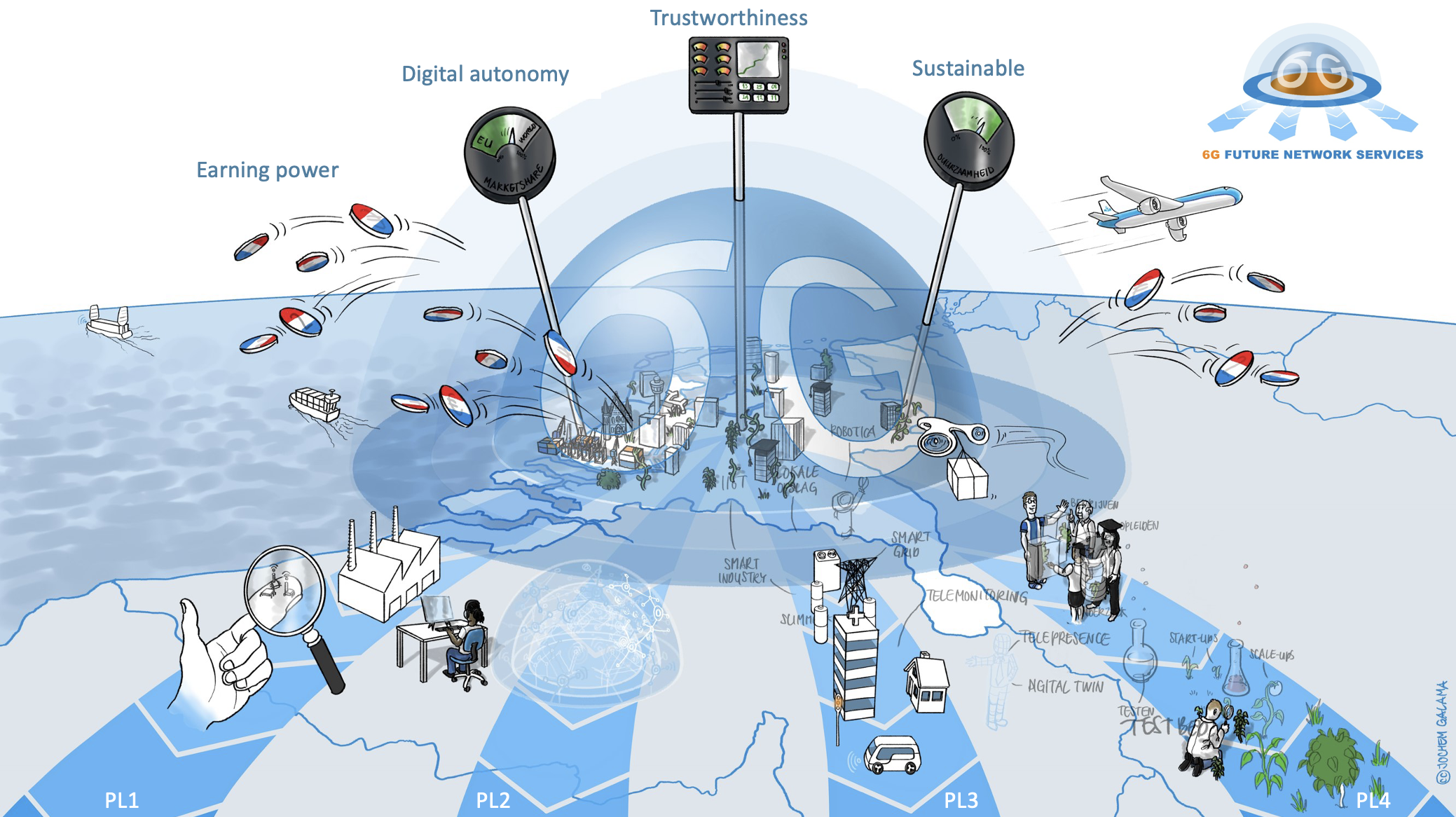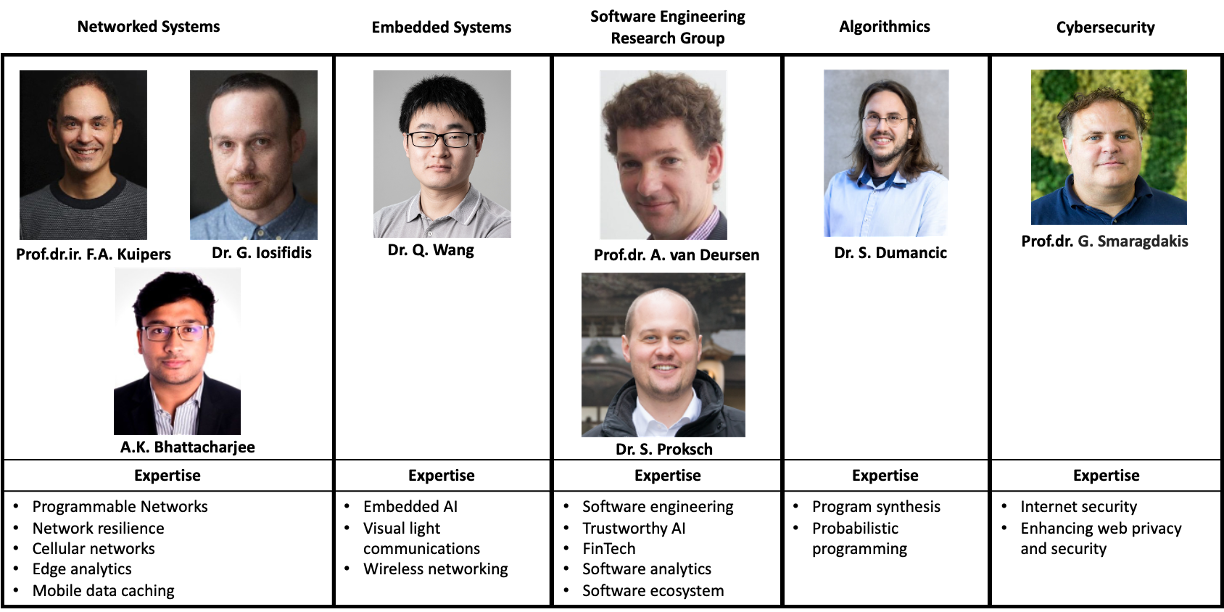In the Netherlands, a unique alliance of 60 top-notch ICT companies, semiconductor firms, and research institutions has united, within the Future Network Services (FNS) project, to spearhead specific aspects of 6G: (1) software antennas, (2) AI-driven network software, and (3) groundbreaking 6G applications.
See the end of the page for several PhD vacancies.
Dutch 6G flagship project
Communication networks provide the bedrock for the ongoing digital transition of our society and the earning power in all its economic sectors, from industry and energy to logistics and healthcare. It is therefore imperative that future communication networks become even faster, more reliable, and secure. To achieve this, a far-reaching collaboration has been set up between public and private parties in the Netherlands, focused on researching and developing 6G communication networks. In this so-called Future Network Services (FNS) flagship project, leading ICT companies, semiconductor companies, and research institutions have teamed up to research and develop specific parts of 6G, namely software antennas, AI-driven network software, and leading 6G applications. By integrating these parts at the 6G software layer, FNS creates a powerful approach to realising a truly intelligent 6G network. Furthermore, it will make 6G networks energy efficient and strengthen Europe’s digitalisation ambitions.

Strong FNS consortium
The FNS consortium comprises 60 partners representing the complete communication networks chain spanning from hardware, to software, to applications. Through FNS, these partners are united in an ecosystem that will build on the many existing strengths, e.g.:
- The Netherlands is home to global market leaders (e.g., NXP) in key radio components for today’s 4G and 5G mobile networks.
- The Netherlands has advanced expertise on (network) software at renowned universities and knowledge institutes, with TU Delft consistently ranking high worldwide in Engineering & Technology and Computer Science, see https://www.tudelft.nl/en/about-tu-delft/facts-and-figures/tu-delft-in-international-rankings/.
- The Dutch communication networks of KPN, Odido, and VodafoneZiggo are rated very high in the international benchmarks on mobile network quality and connectivity. And the Netherlands has an equally high ranking in the European DESI index for integration of digital technology in business and societal sectors.

Unique FNS innovations and (entrepreneurial) opportunities
In FNS, three technical programme lines – PL1: Intelligent components, PL2: Intelligent networks, and PL3: Leading applications – are linked by a fourth programme line (PL4) aimed at strengthening the ecosystem through, among others, setting up a unique national 6G testbed infrastructure for research and innovation, a detailed Human Capital agenda, stimulation of activity in start-ups and SMEs, contributing to the international 6G standards in the making within the 3rd Generation Partnership Project (3GPP) and similar standardisation bodies, and alignment with policy and regulation. As a PhD student within FNS, you therefore have the opportunity and support to undertake start-up and other entrepreneurial opportunities. TU Delft leads program lines PL2 and PL4.

FNS PL2: a computer science and systems approach to 6G
Program line 2 “Intelligent Networks”, led by prof. Kuipers, addresses the network software and architecture for 6G, including the development of a trusted 6G “DevOps” platform to create, share, operationalize and exploit applications and services that can optimally run on 6G networks. Artificial Intelligence (AI) will play an important role in managing 6G networks and, vice versa, 6G will be a catalyst for pervasive AI or, in other words, connected intelligence. Through such intelligence, 6G will establish a multi-provider, multi-technology environment where every application dynamically receives the network, compute, and storage resources it requires for proper functioning: 6G will unleash a digital continuum! Optimal alignment between the DevOps platform and the underlying network technology is crucial and requires R&D&I in, between, and across both “layers”, to address both functional requirements, e.g., regarding bandwidth and latency, as well as non-functional requirements, e.g., regarding sustainability and reliability. Optimising such a complex system calls for systems thinking and collaboration between different disciplines, ranging from networking to computer systems, artificial intelligence, software engineering, and cyber security.
Vacancies
At TU Delft, we have several PhD positions available as part of the FNS project. The positions below are those that relate to PL2:
